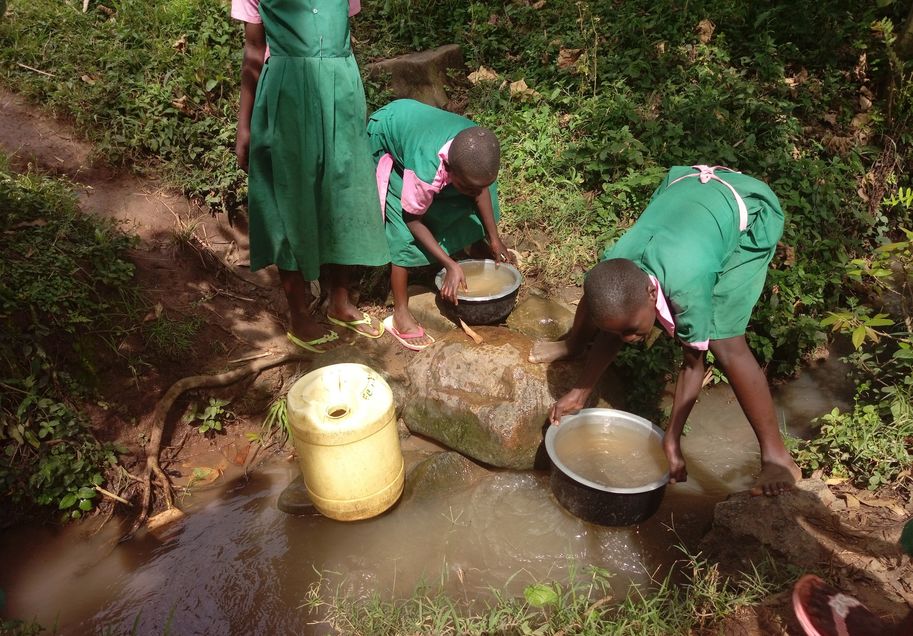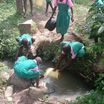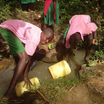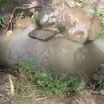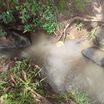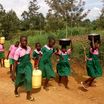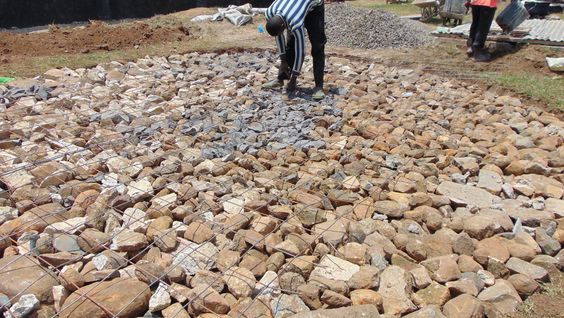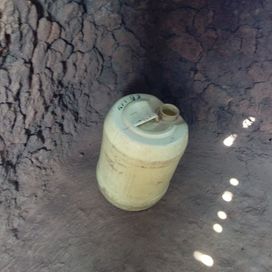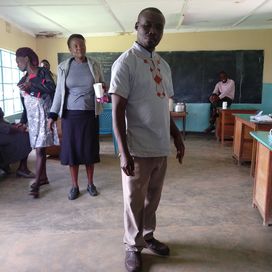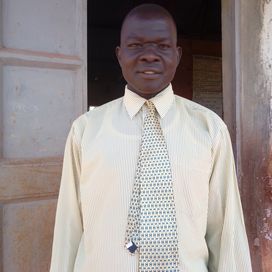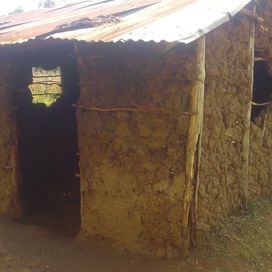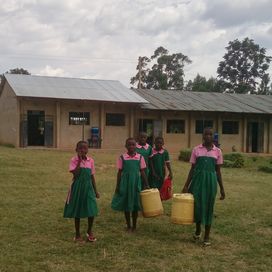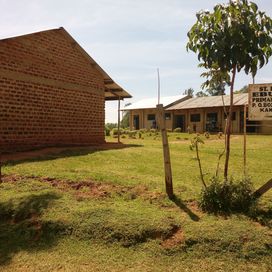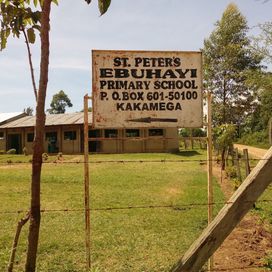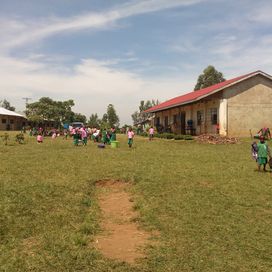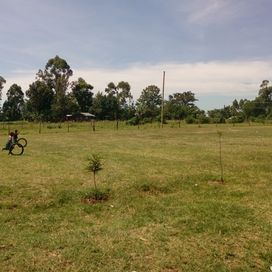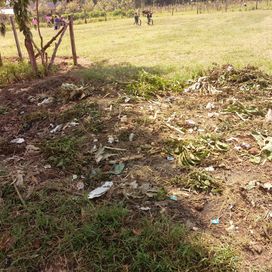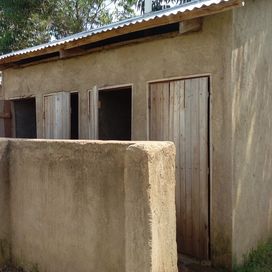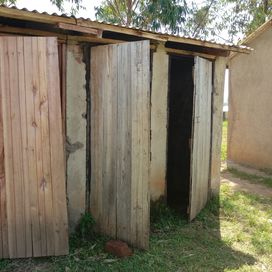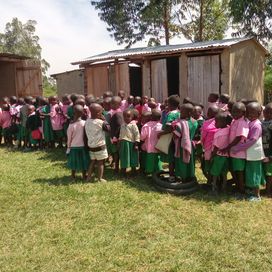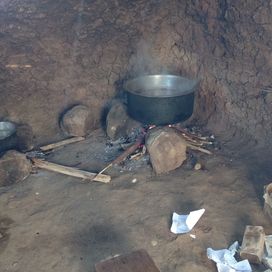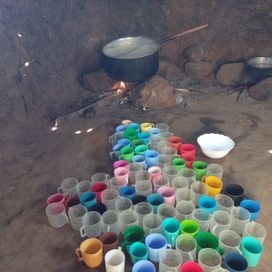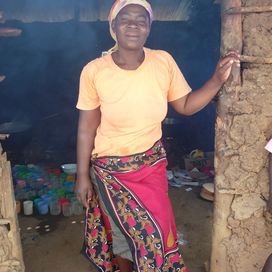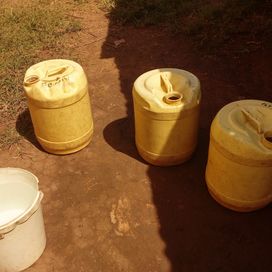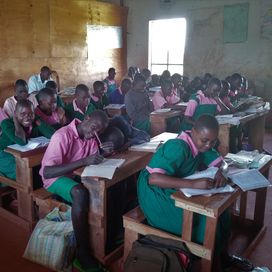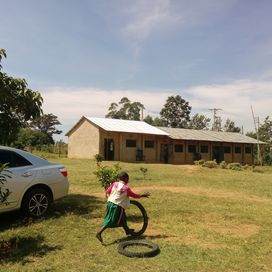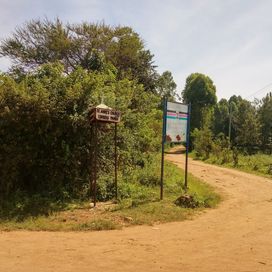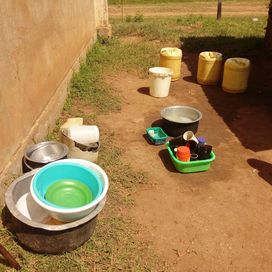Ebukhayi Primary School
Project Complete!
Students learn mathematics, English, Kiswahili, science, religion, and social studies. There are extracurricular clubs, such as scouting and a young farmers club, that meet each Tuesday afternoon.
The students arrive at school at 7 am when they start general cleaning chores. The students also use this time to go to the river that’s about one kilometer away. Some also bring water from home in the morning. They use some of this water to clean the classrooms before classes start at 8 am. They break for lunch at 12:40 pm and resume afternoon classes at 2 pm.
“We normally have absentees often in the school due to waterborne diseases such as diarrhea,” said Deputy Headteacher Okwaro.
With such a long walk for water that isn’t even clean, the school has been forced to sacrifice cleanliness. There is no water kept by the latrines for hand-washing and cleaning up, and the school cuts back on cleaning classrooms when students have an especially busy schedule that does not afford long trips to find water.
Training on good hygiene habits will be held for two days. The facilitator will use PHAST (participatory hygiene and sanitation transformation), ABCD (asset-based community development), CTC (child to child), lectures, group discussions, and handouts to teach health topics and ways to promote good practices within the school. The CTC method will prepare students to lead other students into healthy habits, as well as kickstart a CTC club for the school.
Hand-washing Stations
There are currently no hand-washing stations on school grounds.
Two hand-washing stations will be delivered to the school, and the CTC club will fill them with water on a daily basis and make sure there is always a cleaning agent such as soap or ash.
VIP Latrines
There are only six pit latrines per gender, so the school is in need of a few more.
Two triple-door latrines will be constructed with local materials that the school will help gather. Three doors will serve the girls while the other three serve the boys. And with a new source of water on school grounds, students and staff should have enough to keep these new latrines clean.
Rainwater Catchment Tank
A 50,000-liter rainwater catchment tank will help alleviate the water crisis at this school. The school will also help gather the needed materials such as sand, rocks, and water for mixing cement. Once finished, this tank can begin catching rainfall that will be used by the school’s students and staff. Walking to the river and drinking dirty water will no longer be part of the students’ daily schedule.
We and the school strongly believe that with this assistance, standards will significantly improve. These higher standards will translate to better academic performance!
H2O for Life partners with experienced NGO organizations around the world that build and support clean water, sanitation, and hygiene education projects in schools. These NGO partners cover half the total cost of every project funded through H2O for Life.
When students raise money for a project, 90% of the funds go directly to the project, and 10% supports the work that makes the project possible. This includes choosing trusted partners, managing funds responsibly, checking on projects, and reporting back so students can see the impact of their work.
This helps ensure every project is done well, stays sustainable, and truly changes lives.
In rare situations, we reserve the right to reallocate funds to alternate project(s).
Questions? Ask us at 651-756-7577 or info@h2oforlifeschools.org.
